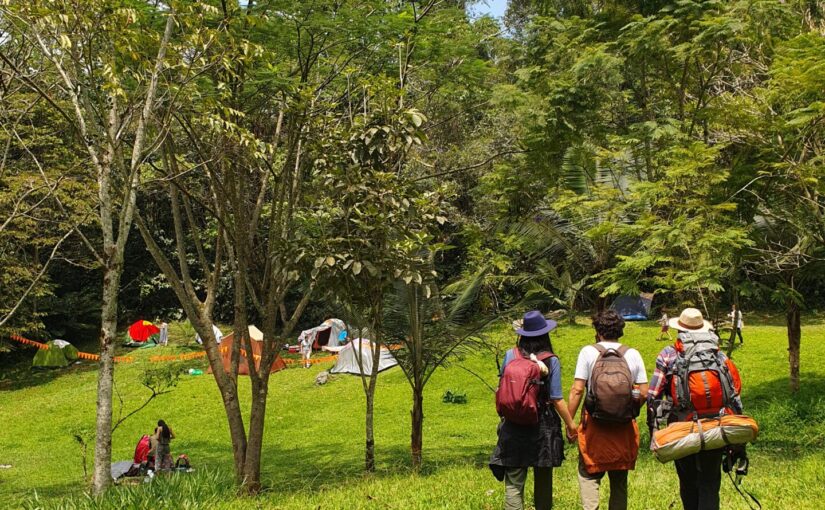Field of study in Wageningen: International Development Studies
Study period exchange: 02/08/2023 – 02/12/2023
Country (exchange): Colombia
City (exchange): Bogotá
University (exchange): La Universidad Nacional de Colombia (UNAL)
Faculty (exchange): Ciencias Humanas (Social studies)
2. Motivation for exchange
Why did you choose to go on study exchange?
I’ve always loved travelling and I saw studying abroad as the perfect opportunity to experience life in a different country as a ‘local’ instead of a tourist. Moreover, with a degree as internationally focused as BIN, it only seemed logical to do an exchange! I would personally like to work for an international NGO after graduating so studying abroad seemed like a good preparation for that. Mainly because studying at a foreign university is a way to learn about your discipline from a different perspective.
What is the reason you chose for this country?
I already knew I wanted to go to a Spanish speaking country to improve my Spanish. I had already been to Spain so I decided to go for either Chile or Colombia. In the end the decision is personal of course. I personally ended up choosing Colombia because I liked the accent (very neutral and easy to learn!) and I’d heard that the country is known for its friendly and outgoing people (completely true!).
What is the reason you chose for this university?
They only offered one university in Colombia! In the year I went at least, it might have changed.
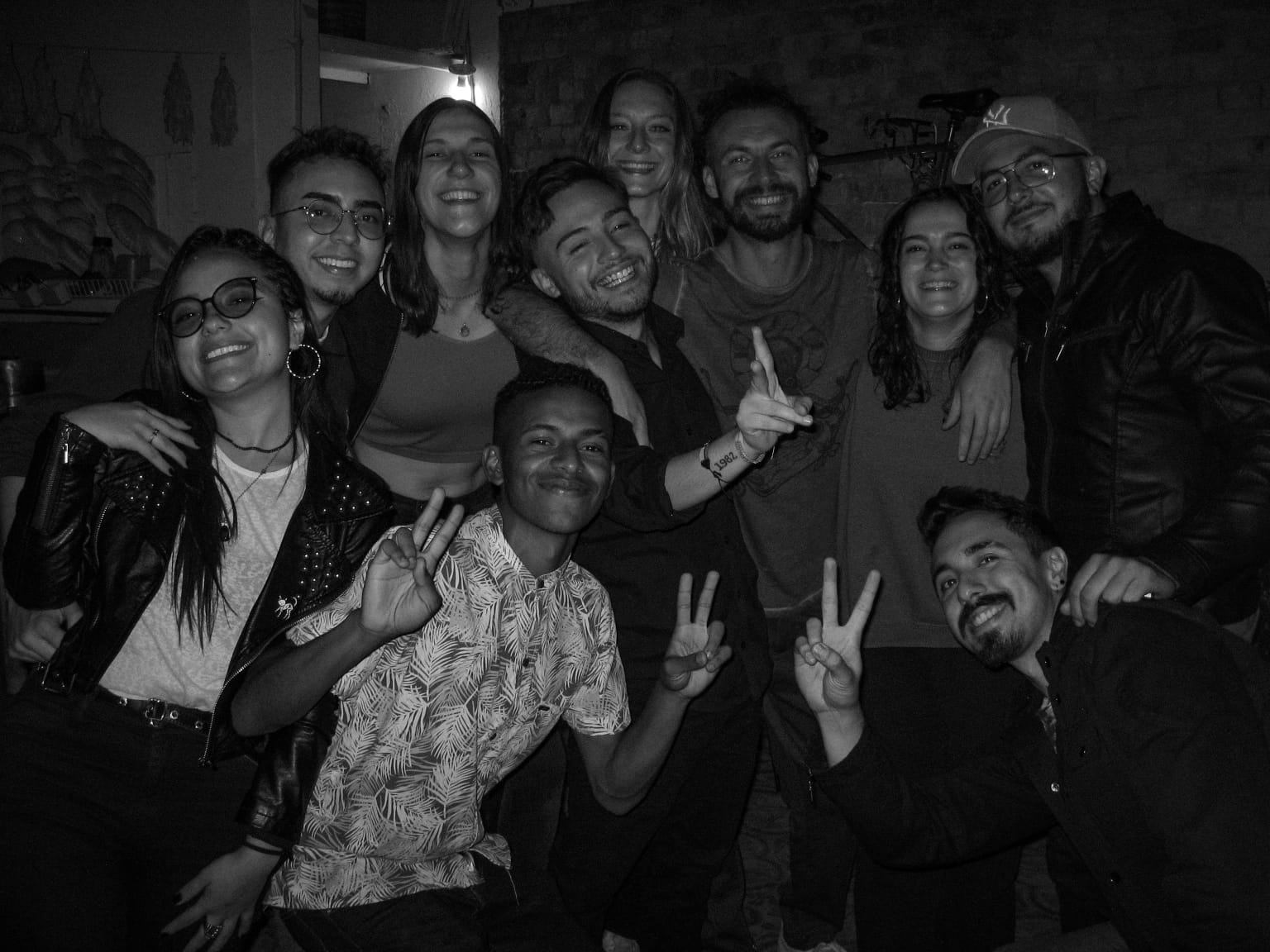
3. Accessibility to reach destination
Do you have any advice about reaching your exchange destination?
I wish I did! To be honest I think it’s fairly straightforward. I took a plane from Amsterdam to Bogotá and then a taxi to my apartment. Maybe it’s wise to download Uber before you land, to possibly avoid any tourist scams. At the same time that’s part of the experience so I wouldn’t worry to much about it. What also might be nice is to get an online sim card so you immediately have internet connection when you land. I didn’t do it but I imagine it might have made the whole first day feel a little less daunting :).
4. University and studying
Could you provide some general information about the followed courses?
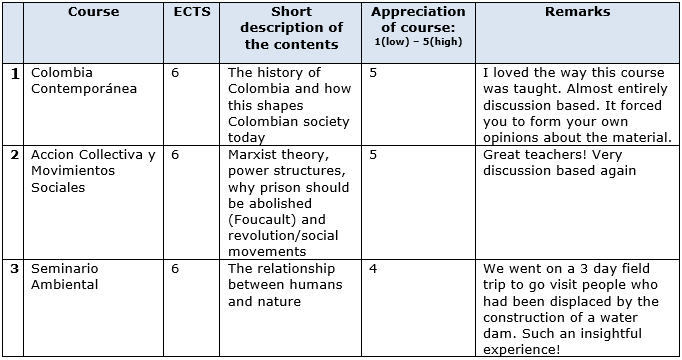
I had sufficient possibilities to select suitable courses that were taught in English:
NO! All courses are taught in Spanish. A basic Spanish level is required but you acquire the language at a super fast pace so if you’re up for a challenge I wouldn’t worry at all!
I had sufficient possibilities to select suitable courses in my field of interest:
Yes. There were was a huge variety of courses from different faculties. You were even allowed to mix and match!
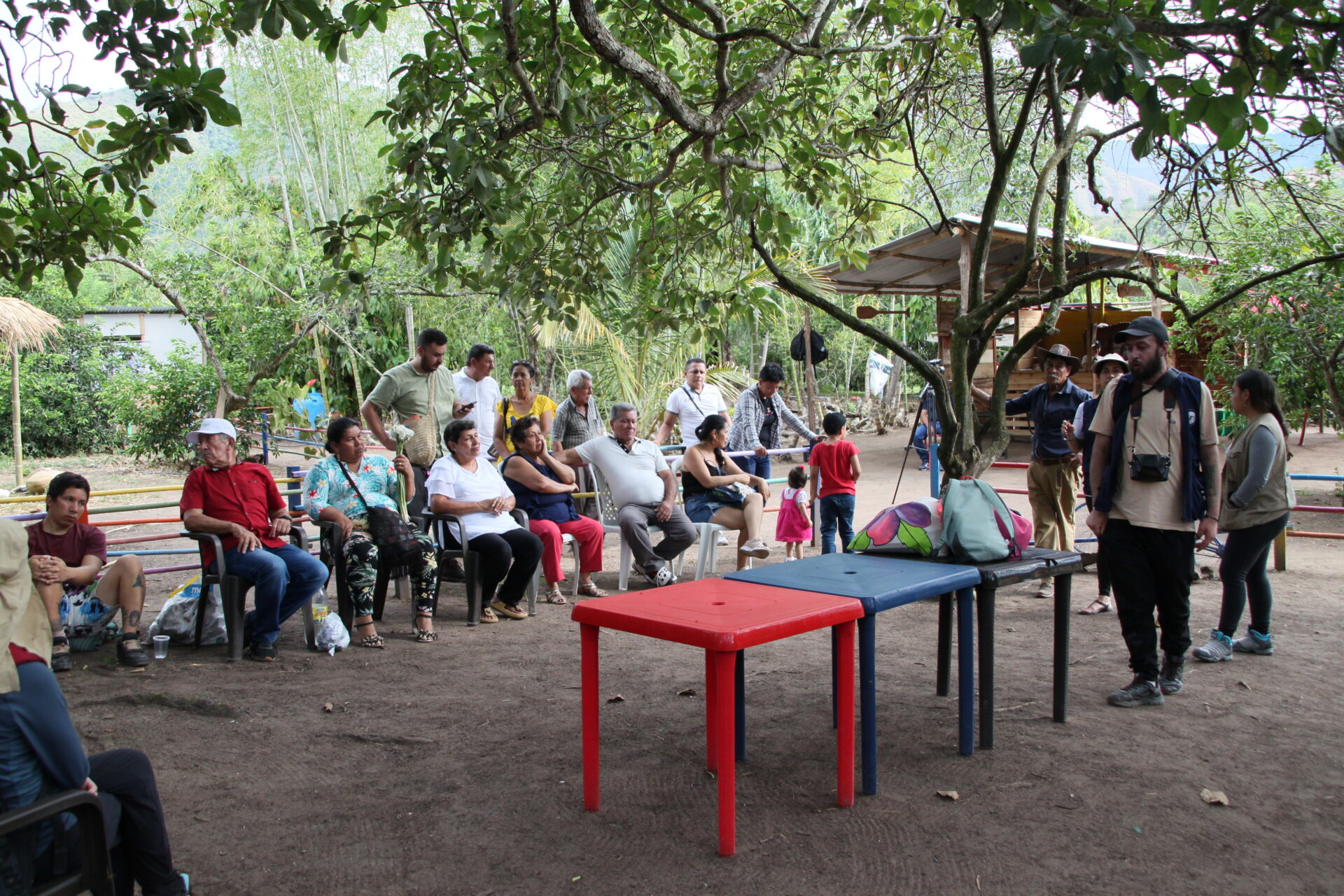
I am satisfied with the level of the courses that I followed:
Yes. Like I said before, the way of teaching in Colombia is completely different from what we’re used to in the Netherlands. You could compare it to the tuturials we have at the WUR! Most of the classes are completely discussion based: you read an article beforehand and discuss it with your classmates. The teacher is an active part of this and steers the discussion in new and interesting directions. For me this way eye opening, it challenged me to think outside of the box and see many social issues in a new light.
I am satisfied, in the end, with the selection of courses I followed:
Yes. I liked all my courses!
What is it like to study there?
Like I previously explained the classes are very discussion based. The focus is more on guiding you to form your own opinion than on examination. A lot of the exams we had were actually creative assignments: giving presentations on a subject of your choice, making songs or even performing a play. I personally experienced the workload to be a bit higher than in the Netherlands. Because the classes were so discussion and participation based, you really had to have read all the assigned materials. This was a challenge because there were days that we were assigned 3 papers to read for the next day. Of course it also took more time and energy because everything was in Spanish.
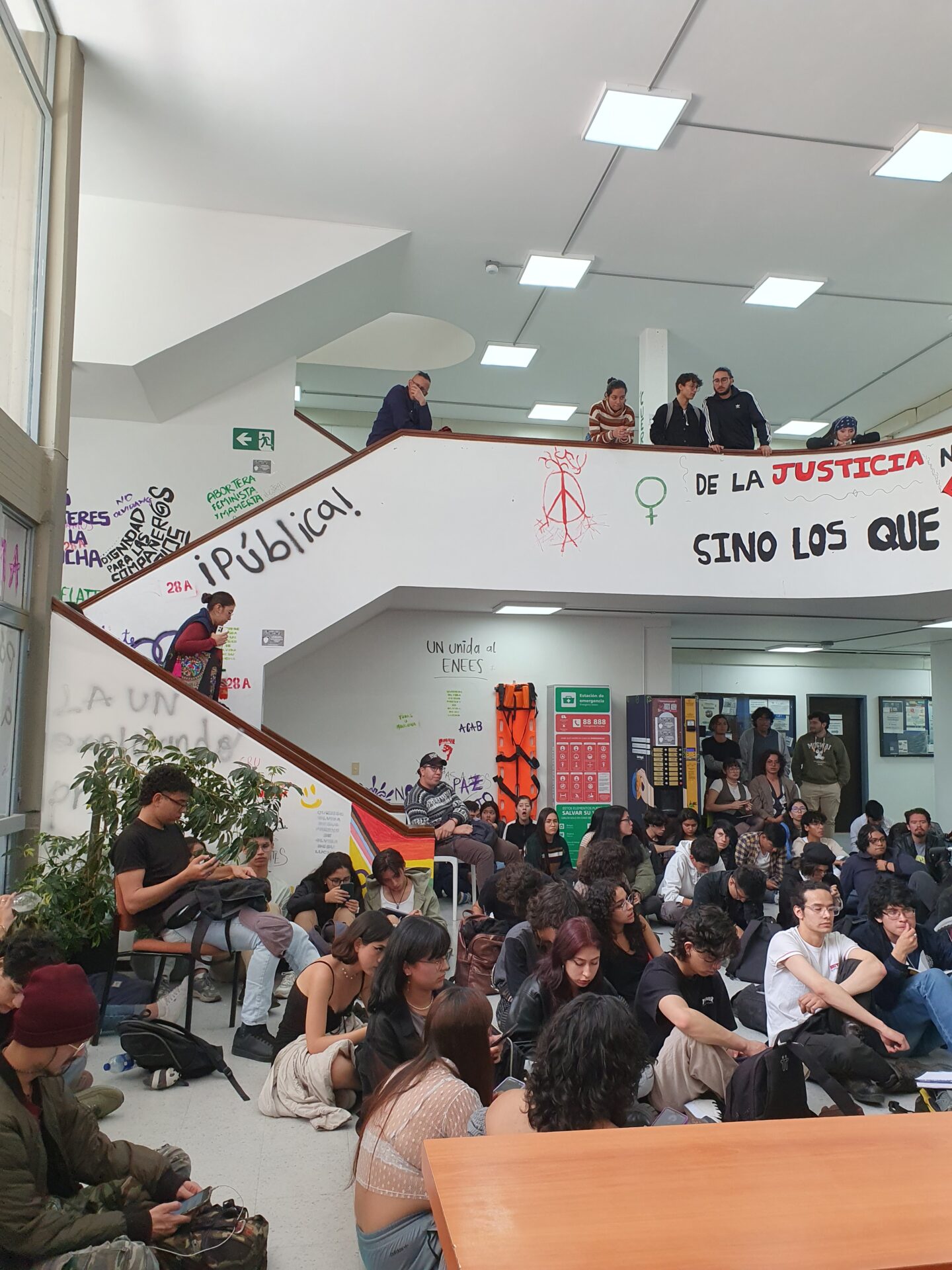
What is the culture of the university?
I loved the culture at the UNAL. People were very motivated and creative. Because they spend so much time at the uni, it seemed like their little safe heaven full of music, people hanging out in the grass and little stands that sold food or fun things like jewellery. The local students were very open to getting to know exchange students. Most of them don’t get to travel outside of Colombia as much so for them it’s exciting to get to know a new culture through you! The teachers were also super friendly. I think the contact between student and teacher was more informal than it is in the Netherlands.
What does the university offer students additionally?
The university doesn’t offer a lot of activities outside of the classroom, most of it is organised by the students themselves. Every Thursday night they would host a party at the campus for example! I think the exchange department of the university also organised some events every once in a while like salsa or picknicks but I wasn’t very involved with them. They do organise an introduction week before uni starts which is supposed to be nice!
5. Housing-traveling-living
What are the possibilities for housing?
The university doesn’t arrange student housing, you have to look yourself. I got my room on the site ‘getvico.com’ which was super easy and quick! I lived with Colombian roommates (and a French guy!) and paid around €320 a month. A friend of mine lived even cheaper and got her room via Facebook!
What is the culture like?
Colombia and the Netherlands are like day and night! I loved it there but it has to fit you. It’s hard to describe the country without falling back in clichés haha. In short, I would say Colombians are the most friendly and outgoing (+party loving!) people out there. They are also the least organised people I’ve ever met so you need to have quite some patience. The food is delicious (try chicharron!) and the country itself is incredible beautiful and diverse.
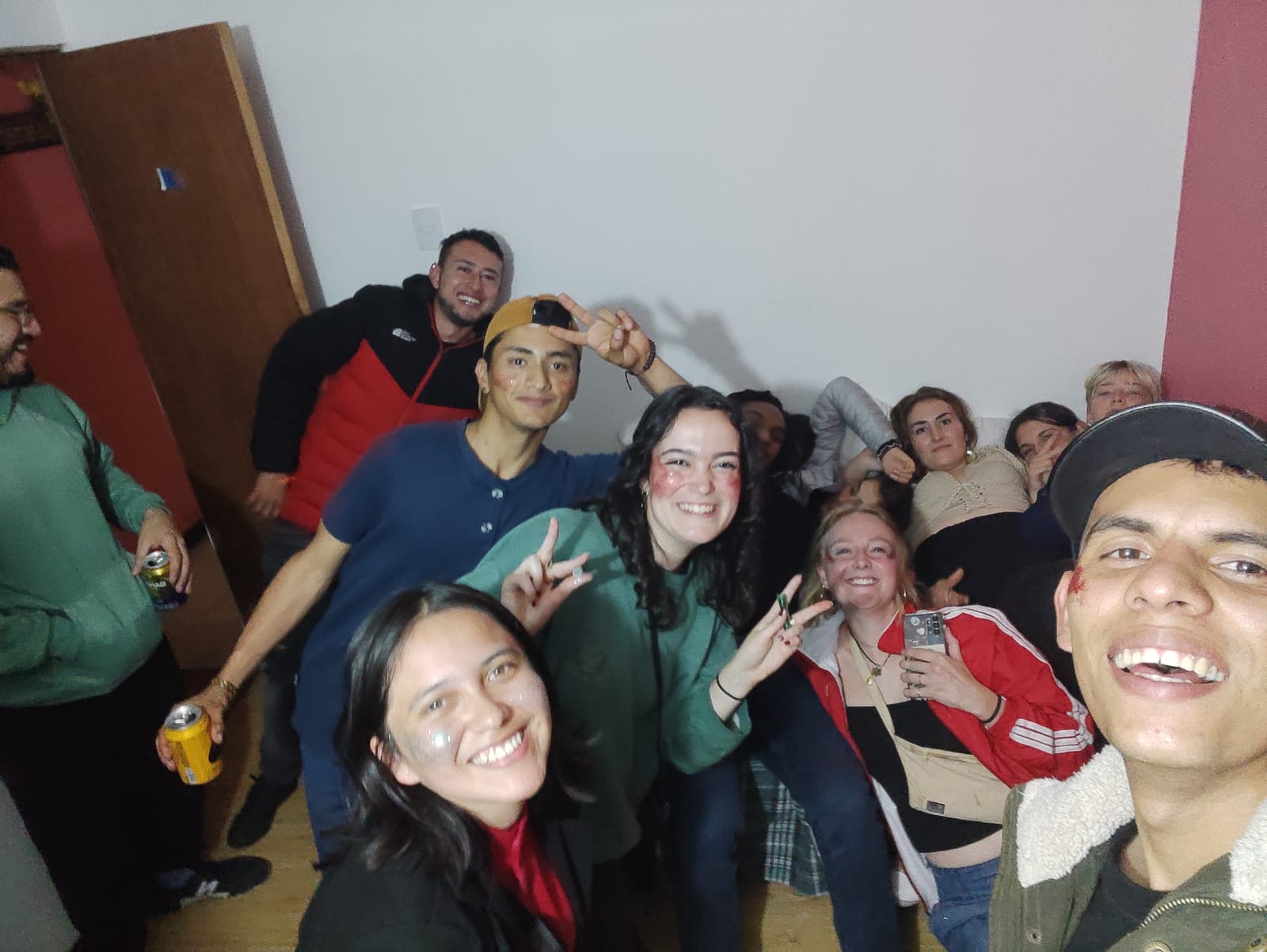
Could you give some information about public transport infrastructure?
Public transport is pretty good in Bogotá! As long as you don’t travel during the peak hours your fine. If you have an early class this is challenging so I normally just walked to uni (around 40 minutes). They also have pretty okay bike infrastructure. Taking the metro or bus was very cheap, around €0,60. During the night I wouldn’t travel by public transport (safer if you don’t), so we used to take the taxi or motor taxi. There are multiple apps that you can use and prices varied between €1,50 and €7.
6. Expenses
Can you give an indication of your expenses for/during your exchange?
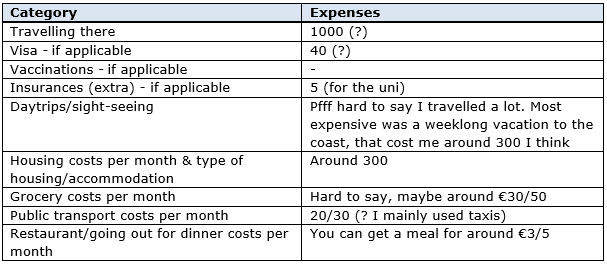
The price levels were in general [higher; lower; equal] in comparison to in the Netherlands:
Lower (lol).
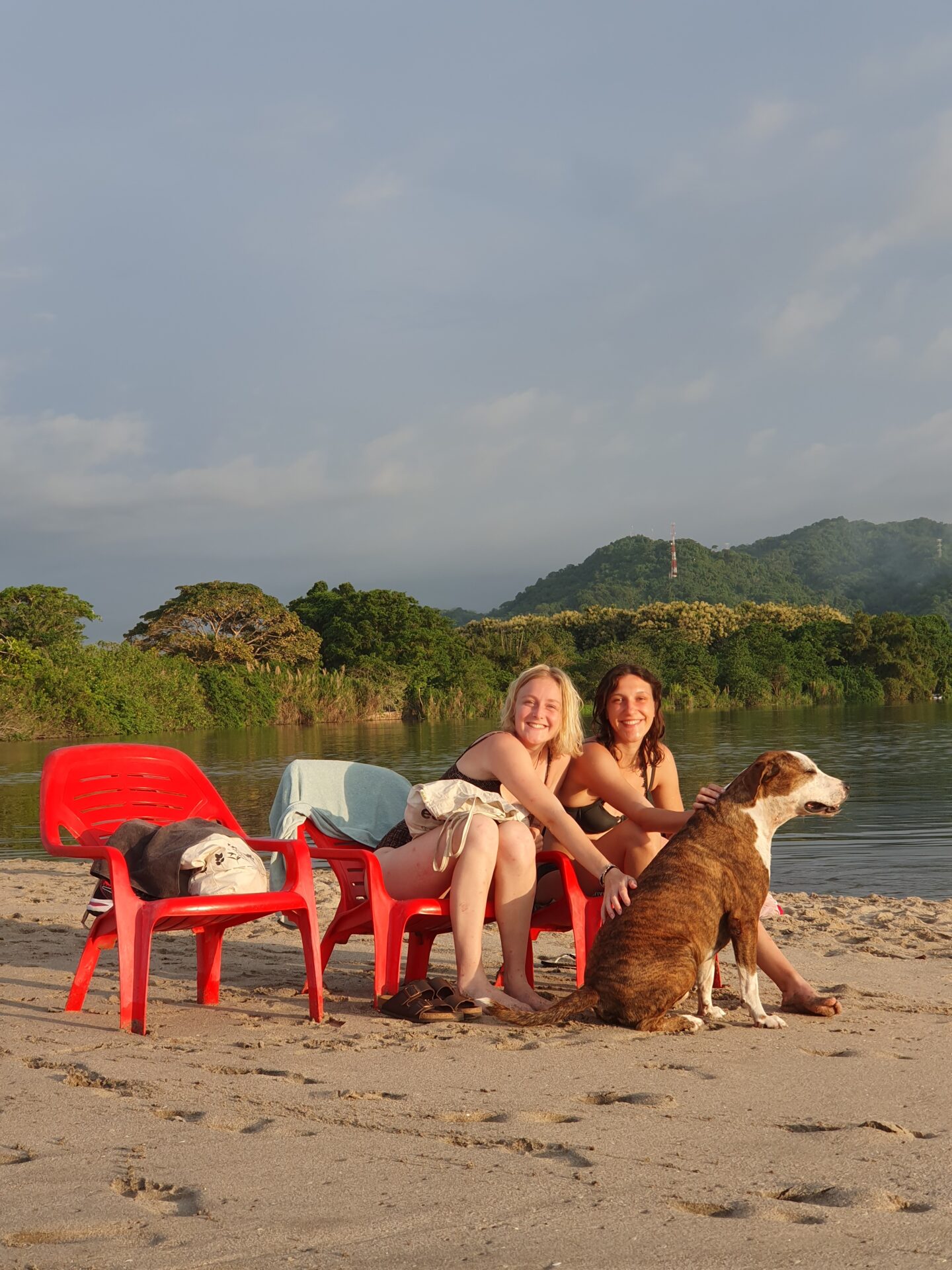
7. Free time
What are must-sees in the area?
That’s for you to find out! For now I recommend (In Bogotá): Theatron (nightclub), Modern Art Museum, la Cinemateca (cinema with indie/documentary style movies). Ahh and don’t forget to go to some raves if your into that, they were incredible!
What does not appear in a travel guide, but is definitely worth seeing/doing?
Go camping with your friends! It’s cheap and oh so fun :). We went to La Vega for example. Travel guides also tell you not to visit the East Coast of Colombia for safety reasons but I would take this with a grain of salt. Be mindful but don’t be afraid to go. We visited Juanchaco for example, a remote and idyllic island way different from the ones on the North Coast. Ohh also don’t miss out on San Augustin or Ipiales (Sanctuario de las Lajas!! It borders with Ecuador so it’s also a cool opportunity to see a more indigenous side to Colombia).
8. Challenges & best moment abroad
Any challenges? How did you deal with them?
I think for me the main challenge was exhaustion. Especially in the beginning everything took a lot of energy. Speaking a foreign language all day, the uni workload, taking on as many social events as possible to make friends. After a while this faded though, you just have to learn to pace yourself. My phone and bankcard also got stolen towards the end of my stay (my fault, I wasn’t paying attention) so that was stressful. One tip I would give on that would be to bring an extra sim card (and even extra bankcard if that’s possible), that would have saved me some trouble! I’ll end with a big cliché but it’s definitely true, the biggest challenge was actually leaving Colombia! It was an amazing time and I would more than recommend going there on your Erasmus.
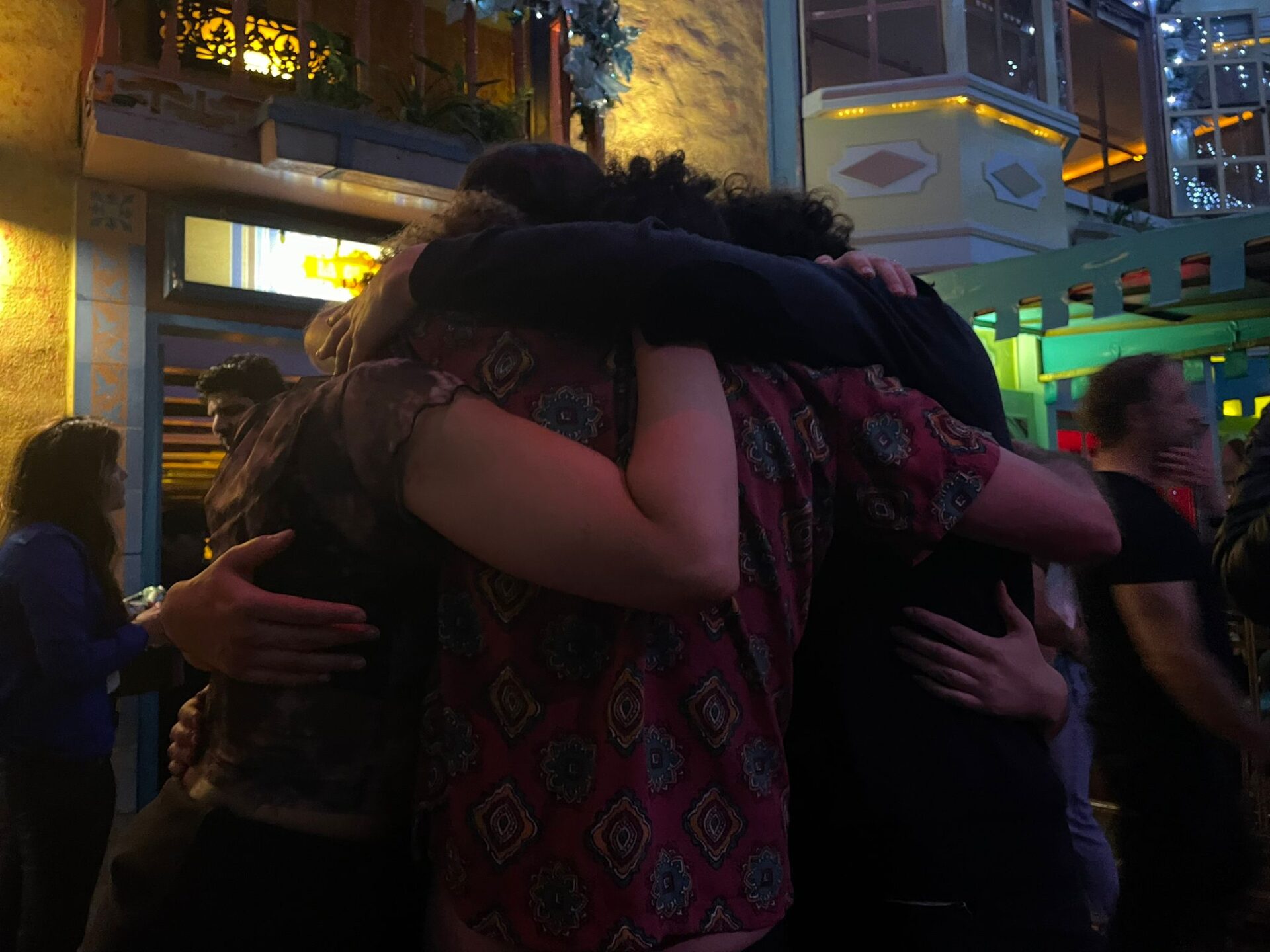
Best memory?
After my semester had ended my family came to visit me. My sister went out with my friends and I to the club we went almost every week (Theatron!). Seeing her dance with the people I had grown so fond of so quickly, and seeing how amazed she was by the different culture was something I’ll never forget :).
8. Contact Details
Would you like to ask Lisa more questions about her exchange?
Send her a mail: lisakluijtmans@gmail.com

